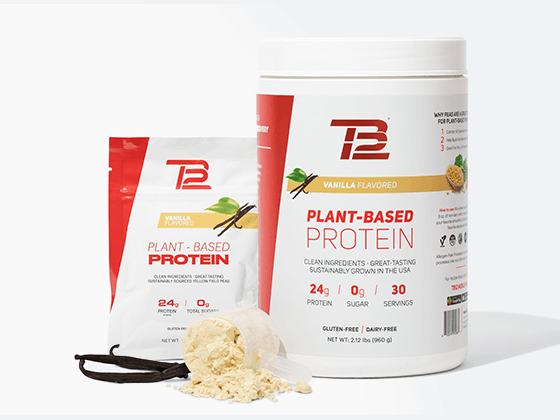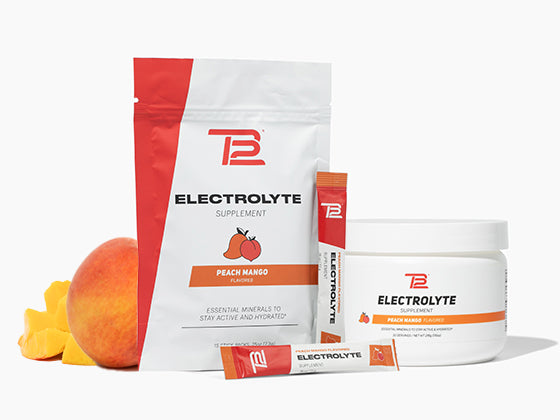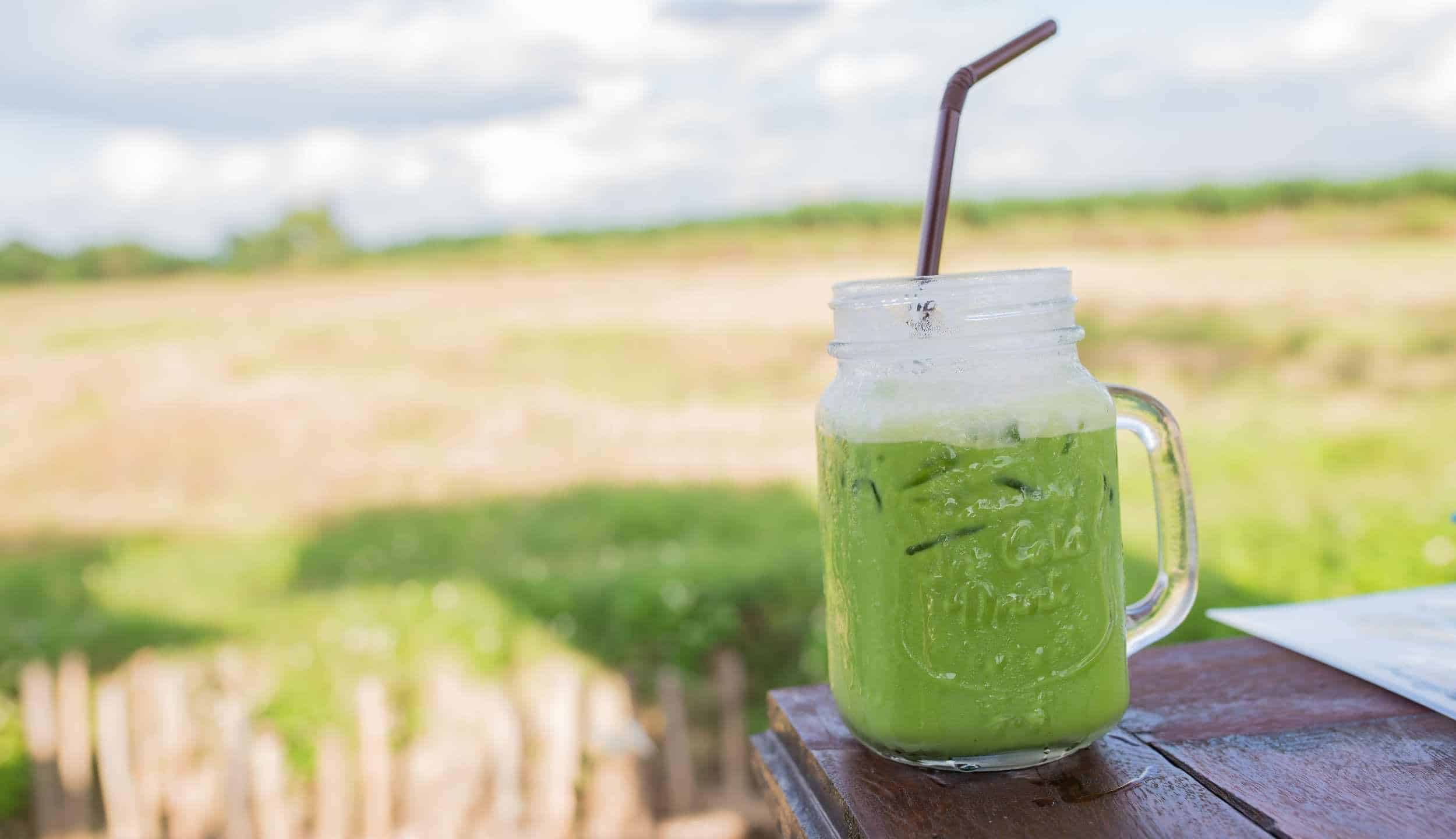Inflammation is a hot topic in the world of nutrition because it affects so many individuals. The acute functions of inflammation can be beneficial, like when you get an injury and it becomes inflamed as white blood cells rush to the area for protection and to stave off infection. The issue is chronic inflammation – a longer-term issue that can have disastrous effects including significant weight gain and serious disease.

There are other factors that can also contribute to inflammation – such as increased stress, low levels of physical activity, and inflammatory foods. These types of reactive foods have an especially large impact on the gut microbiome. The good news, According to Dr. William Li, world-renowned physician, scientist, Author of New York Times best seller Eat To Beat Disease and friend of TB12, is that there are foods that we can consume that also have positive anti-inflammatory effects on the body.
Inflammation and the Gut
The gut is one of the areas of the human body that is most negatively impacted by inflammation. Excess consumption of inflammatory foods such as saturated fat has been shown to increase intestinal permeability and inflammation. A lack of short-chain fatty acids, a shortage of beneficial bacteria, and a plethora of harmful gut bacteria can also increase inflammation in the digestive tract. A deficiency of fiber, which many of us in western cultures unknowingly experience, can have further harmful effects on the gut’s environment, leading to inflammation. As I discuss in my book Eat to Beat Disease, there are also numerous delicious foods that should be consumed more regularly because of their protective anti-inflammatory effects throughout the body.
Beans
If there was one nutrient that I could recommend to you to help ease the effects of inflammation, especially in the gut, it would be plant-based fiber. Beans such as the black and navy varieties are extraordinarily high in dietary fiber. There are trillions of bacteria living in our digestive tract. When the bacteria digest plant-based fiber, they produce metabolites known as short-chain fatty acids (SCFAs) such as propionate, butyrate, and acetate. When you hear the term “prebiotic,” it is typically referring to dietary fiber, as it feeds the beneficial bacteria which produce these SCFAs. The SCFAs have numerous positive effects including improving the gut environment and decreasing inflammation. If you increase your consumption of beans, you will also increase your levels of plant-based fiber and subsequent anti-inflammatory SCFAs.
Whole Rye
Researchers at the Universite Joseph Fourier, Universite Grenoble, and University of Auvergne in France, from the University of Parma in Italy, and from the University of Almeria in Spain examined the effects of whole rye consumption on the microbiome. They fed healthy rats samples made from either whole or processed rye and studied the effects on their microbiome. The results demonstrated that animals consuming the whole rye had 60 percent lower levels of Desulfovibrionaceae, a bacteria that generates a toxin called hydrogen sulfide, which injures the gut lining. When the gut is damaged like this, food particles can leak out from inside the intestines, causing an inflammatory reaction.

Brassica Vegetables
Vegetables like broccoli, cauliflower, Brussels sprouts, cabbage, and collard greens are part of the Brassica genus of plants in the mustard family (Brassicaceae). Researchers from the Institute of Food Research in Norwich, United Kingdom conducted a clinical study of these vegetables to examine their microbiota effects on healthy adult humans. Subjects were given either one cup or one-tenth of a cup of brassica vegetables daily. Those consuming larger quantities of brassica veggies had a 35 percent reduced amount of hydrogen sulfide-producing bacteria in their gut at the end of the trial indicating that brassica vegetables can have a protective effect against inflammation.
Teas
In general, teas contain numerous antioxidant, antiangiogenic, and anti-inflammatory properties. Scientists at Ningbo University and Wenzhou Vocational College of Science and Technology in China tested green, oolong, and black teas for their effect on gut bacteria and all of them generated positive results. When examining the concentration of the anti-inflammatory SCFs produced after tea consumption, it was determined that all of the teas significantly increased the three SCFAs acetate, propionate, and butyrate. And somewhat surprisingly, black tea polyphenols resulted in an overall larger increase than the green and oolong teas.
Turmeric
Turmeric is a root in the ginger family. It can be eaten fresh but is more commonly ground into a fine, bright orange powder and used as a spice. Curcumin, the main compound in turmeric, has substantial anti-inflammatory effects. In lab rats with hypertension, scientists at the China Academy of Sciences discovered that eating curcumin reduced injury to the coronary blood vessels feeding the heart by allowing their genes to produce a protein called tissue inhibitor of metalloproteinases (TIMP). This protein has been shown to reduce inflammation, so curcumin can be said to protect the heart from inflammation that could ultimately lead to a heart attack from damaged arteries. Something to note is that curcumin is best absorbed when accompanied by piperine, the compound found in black pepper, so be sure to add black pepper to your recipes that include turmeric.
***
Beyond regularly incorporating these delicious anti-inflammatory foods into your diet, I also recommend eating animal protein, ultra-processed foods, and sugar-sweetened beverages in moderation as more animal protein shifts the gut microbiota (bacteria in our gut) to behave in ways that generate more inflammation. Be sure to check out Eat to Beat Disease for even more examples of foods that you can eat every day to protect against and decrease inflammation.





